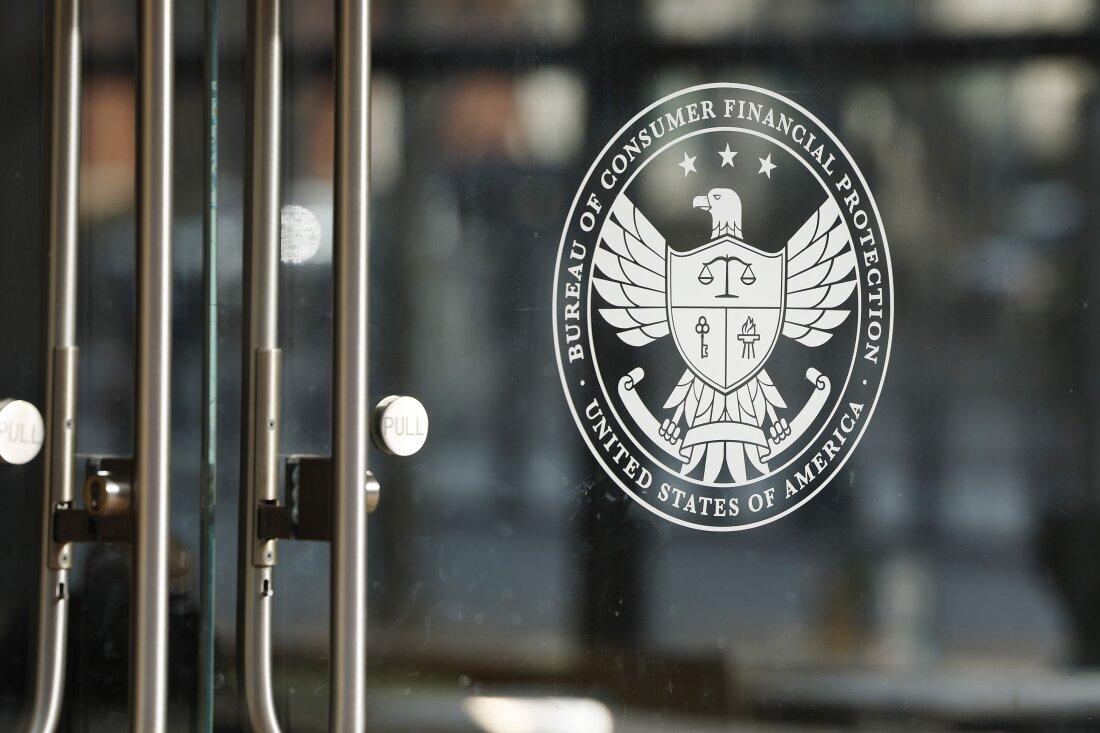Elon Musk’s ambitions have always extended beyond the conventional boundaries of business and technology. Since acquiring Twitter—now rebranded as X—in 2022, Musk has envisioned it as “the everything app,” a platform that not only serves as a social media hub but also integrates financial services, allowing users to transfer money seamlessly and manage their financial transactions entirely within the ecosystem. His latest move, however, has sparked intense scrutiny, as he positions himself at the center of a controversial effort to dismantle a key financial regulatory body in the United States.
Musk’s crusade against financial oversight took a significant turn shortly after he attended the inauguration of President Donald Trump earlier this year. Within days, X’s CEO, Linda Yaccarino, unveiled the company’s first major step towards integrating financial services: a digital wallet and a peer-to-peer payment system developed in collaboration with Visa, scheduled for launch later this year. This development marked a crucial milestone in Musk’s mission to transform X into a dominant player in the financial sector.
However, the most dramatic aspect of this unfolding narrative is Musk’s aggressive stance against the Consumer Financial Protection Bureau (CFPB), the primary federal agency responsible for overseeing financial transactions and protecting consumers from fraudulent practices. In a now-infamous post on X last week, Musk bluntly declared “RIP CFPB,” accompanied by a tombstone emoji—an unmistakable signal of his intent to undermine the agency.
Shortly thereafter, events took a stunning turn. The Department of Government Efficiency (DOGE), a newly formed agency under Musk’s leadership, reportedly gained access to the CFPB’s systems and deleted its official X account. According to a source familiar with the situation, the CFPB’s acting director subsequently ordered all employees to cease operations, effectively halting the agency’s regulatory efforts, including its role in preventing financial abuse.
This unprecedented development has alarmed consumer advocacy groups and ethics experts, who warn of a stark conflict of interest. Musk, the world’s richest man, is now in a position where his business interests stand to benefit significantly from the weakening of financial oversight. Critics argue that his direct involvement in the dismantling of the CFPB raises serious ethical and legal concerns.
The White House responded on Tuesday, confirming that Musk would be required to file a financial disclosure, though it would remain confidential. A White House official clarified that “as an unpaid special government employee who is not a commission officer, he will file a confidential financial disclosure report per the norm.” However, this assurance has done little to assuage concerns.
Legal experts have raised red flags over Musk’s involvement in CFPB matters, warning that he could be violating federal conflict-of-interest laws. Richard Painter, a law professor at the University of Minnesota and former chief ethics lawyer for the George W. Bush administration, did not mince words in his assessment.
“Elon Musk needs to stay away from the CFPB. That’s cut-and-dry,” Painter stated in an interview. “If there is any evidence that he has participated in a matter involving the CFPB or has interfered with its work, then he is at risk of violating the statute. That’s a slam dunk.”
The implications of Musk’s actions extend beyond X’s foray into financial services. Tesla, his most valuable company, also falls within the CFPB’s regulatory purview due to its financing division, Tesla Finance LLC, which provides auto loans. While the CFPB does not regulate auto dealerships, it does oversee financial institutions that issue car loans, putting Tesla under its jurisdiction.
Ironically, Tesla is included on a list of securities that CFPB employees are prohibited from owning due to potential conflicts of interest. Yet, at the very moment the CFPB is being dismantled, its largest shareholder—Musk himself—is leading the charge against the agency. Christopher Peterson, a law professor at the University of Utah and former CFPB official, criticized the situation as a fundamental perversion of democratic governance.
“It’s absurdly ironic. This turns the notion of government by the people and for the people on its head,” Peterson remarked.
Musk’s opposition to financial regulation is not a new development. Following Trump’s victory, he posted a blunt statement: “Delete CFPB. There are too many duplicative regulatory agencies.” For many, this statement suggests that even if Musk were to recuse himself formally from matters involving the CFPB, the damage has already been done. His public stance has effectively set the tone for those carrying out his agenda.
“If the boss says, ‘CFPB RIP’ and that it should be deleted, recusal is a little late here,” Peterson added. “He’s already given the marching orders.”
Neither X nor Tesla responded to requests for comment from Musk regarding these concerns. The White House also declined to provide a statement on the potential conflicts of interest surrounding his role in the administration.
On Monday, the White House issued a statement justifying its actions, arguing that the CFPB had “long functioned as another woke, weaponized arm of the bureaucracy that leverages its power against certain industries and individuals disfavored by so-called ‘elites.’” The statement concluded with a definitive stance: “Under the administration of President Donald J. Trump, the weaponization ends right now.”
When pressed by a reporter, President Trump confirmed his administration’s ultimate goal was the elimination of the CFPB, stating, “Because we’re trying to get rid of waste, fraud, and abuse.”
The potential consequences of this decision have left consumer advocates deeply concerned. Kathleen Engel, a research professor at Suffolk University Law School and former CFPB advisory board member, emphasized the dangers of leaving financial markets unpoliced.
“The CFPB is the cop on the beat. If you want the cops to stay away, you get rid of the police department,” Engel explained. “We’re talking about a real Wild West situation.”
Engel pointed to X’s ambitions in the payments industry as the most glaring conflict of interest in Musk’s regulatory assault. The CFPB has historically played a vital role in consumer protection, with its enforcement actions leading to nearly $20 billion in relief for approximately 195 million people. Dennis Kelleher, CEO of Better Markets, warned that weakening the agency would leave ordinary consumers vulnerable.
“Elon Musk is trying to cripple an agency that is designed to protect consumers—the very people he’s trying to sell products and services to,” Kelleher stated. “When they get ripped off, mom-and-pop businesses on Main Street have no chance on their own against these massive financial corporations.”
Meanwhile, X continues to expand its financial services. In January 2024, the company announced plans to launch peer-to-peer payments, touting it as an opportunity for users to “showcase the power of living more of your life in one place.” X Payments LLC, the division handling financial transactions, is already registered with the Financial Crimes Enforcement Network (FinCEN) and has received money transmission licenses in 41 states.
Linda Yaccarino has promised that the new X Money Account will debut later this year, emphasizing that the Visa partnership is merely the first of “many big announcements” on the horizon.
As Musk pushes forward with his vision for X, the dismantling of the CFPB raises urgent questions about the future of financial regulation in the United States. With consumer protection at stake and powerful business interests in play, the outcome of this battle could have far-reaching consequences for the financial landscape.







